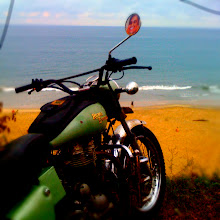I have made it home, and am now mostly adjusted to the Central time zone, after what ended up being 50 hours of travel between leaving Beijing to arriving in the City of Lakes. (My planned 7-hour lay-over in Chicago got extended by a delayed and oversold plane. At the 41-hour mark of my journey homeward, I accepted the airline's offer of 4 hours in a hotel in Chicago, a free ticket within the continental US, and first-class flight home the following morning.)
While I'm both tempted and reluctant to describe this return trip home as "epic," there is at least one sense in which that term is fitting: In re-acquainting myself to Minneapolis, I've been experiencing that wonderful sense of alienation that comes after travel, when familiar haunts, routines and habits both re-assert themselves and also seem strange, foreign and in some cases, downright odd.
It's been impossible, too, to resist comparisons between my experiences in China and life at home.
As I reflect on my diet in China (incredible diversity of ingredients, readily available, with an abundance of vegetables and fresh fish, and for me, a near-total absence of coffee and diary products), it's hard not to compare the waists and general fitness of people in China and here at home. It was shocking, actually, to land in Chicago and see people who seemed gigantic to me after spending a month of among folks -- Chinese people and lithe fellow travelers from around the world -- next to whom I often felt like, okay, it's time I really hit the gym.
As I try to describe the trip to others, I'm reminded of something Charlotte, a fellow traveler from New Zealand whom I met in Xi'an, said to me. She used the word tolerant to characterize her interactions with many Chinese people. She went on to share her impression that, in China, people seem to understand that everyone needs to get their needs met, and so there's a general willingness to make way for others and expect others to reciprocate, a camaraderie, if you will, that prevails over many interactions. Interactions which, back home, would cause frustration or even violence. Examples abound: the traffic flows in a way that feels more organic, less controlled, yet I didn't see the road rage I would expect at home; meals are almost always collective affairs, where the focus seems to be making sure the table has what it needs, rather than individual diners; any queue or collective wait creates a surge of people pressing forward and yet, appearance aside, no one seems particular harried in this collective mad dash.
These are only obvious, tangible examples, but they hint at something that I sensed on my trip, but don't yet have the words to adequately convey: a general ease and comfort you find in most people that things are moving forward, and even if it's a little messy, or a little difficult for some, overall things are moving in a good direction. That's still insufficient as a description, but it may capture the general, unhurried optimism I sensed in the attitude of many people I met in China. Optimism and patience. What a nice combination.
But there's certainly much more cogitating needed before I can do justice to this experience in words. (In fact, that point may never arrive.)
In the meantime, I'm having fun reconnecting with folks, unpacking my bags (the laundry situation might only be remedied with a bonfire), sifting through the zillion baffling scraps of paper I accumulated on this trip (including three receipts from one meal -- one for each dish or beverage ordered!), and organizing my photos from the trip (which I'll post soon).
And so far, here are the lessons for my packing for my next trip to China:
- Fewer clothes (The 4 long-sleeve shirts and 2 dressy pants I took were more than needed -- one of each could have sufficed for September, since I spent most days in a short-sleeve shirt and jeans. Besides, clothes are easy, cheap and fun to acquire during travels, and not maxing out one's pack is essential.)
- A bottle opener comes in handy (cigarette lighters there are made of softer plastic, and don't substitute for a good opener very well)
- A Skype headset and Skype-out credit with auto-recharging enabled, for staying in touch with the peeps
- TSA-approved combination locks (These are preferable to the key-locks I had with me, which required me to carry a key chain in my pocket, and also required the intervention of a hacksaw when I, um, locked said key chain inside my locker at a hostel in Beijing.)
- Less reading material, since there are foreign language bookstores with a decent English selection in most major cities
- An LED flashlight or headlamp, with good batteries (my headlamp apparently got turned on in my pack en route to China, and so was dead for the duration of my trip)
- A mobile phone that will accept a GSM SIM card
- A travel pillow, for plane, bus or train rides without sleeping berths, and to supplement rather skimpy or dingy pillows available at some hostels and sleeping berths
- A pocket knife
- A Chinese SIM card
- Loose-leaf tea of your choice and a handy tea thermos with a strainer (I bought mine at the base of the Yellow Mountains for about $1), which in combination with the abundant, free hot water in buses, trains, hotels and restaurants, means you have a tasty beverage anywhere in China.
My final thought for today:
Having returned home happy and healthy, I want to thank everyone who, through their own travels, emails, blog comments, telepathy and other means, joined me on this trip. It was a great pleasure to share this experience, and I look forward to continuing to share our travels, wherever they may take us.
























